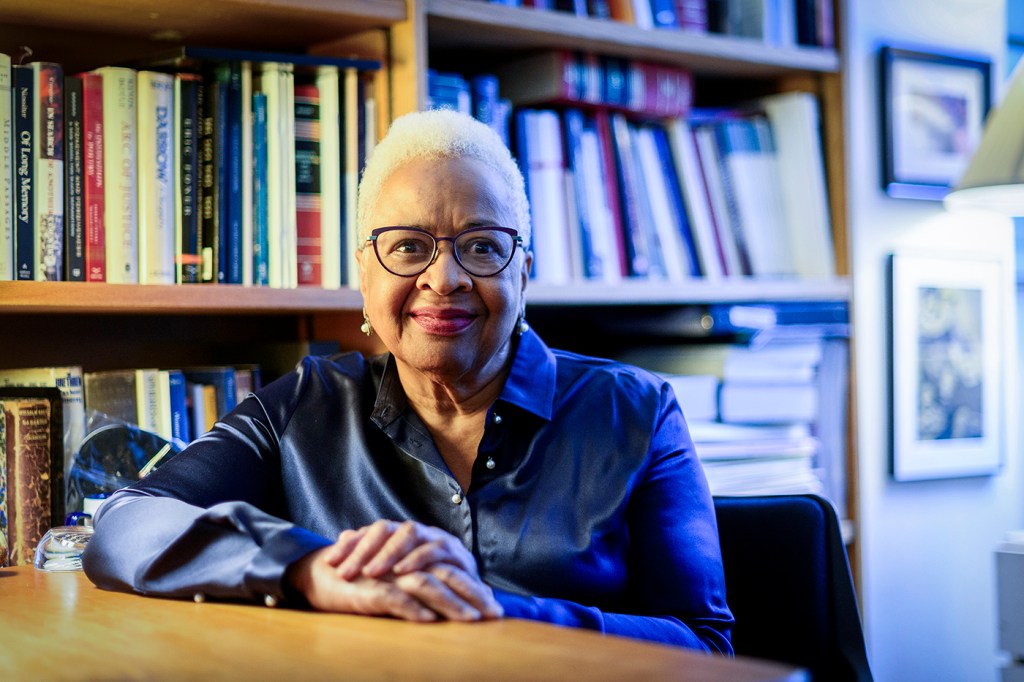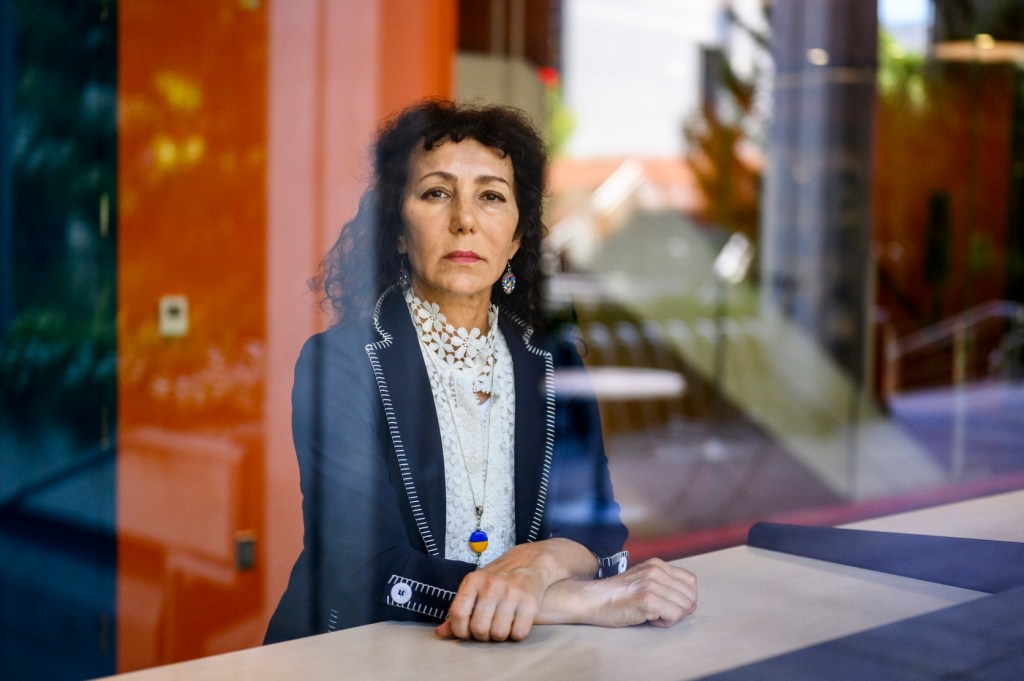Working toward ‘a future in which reproductive justice just is’
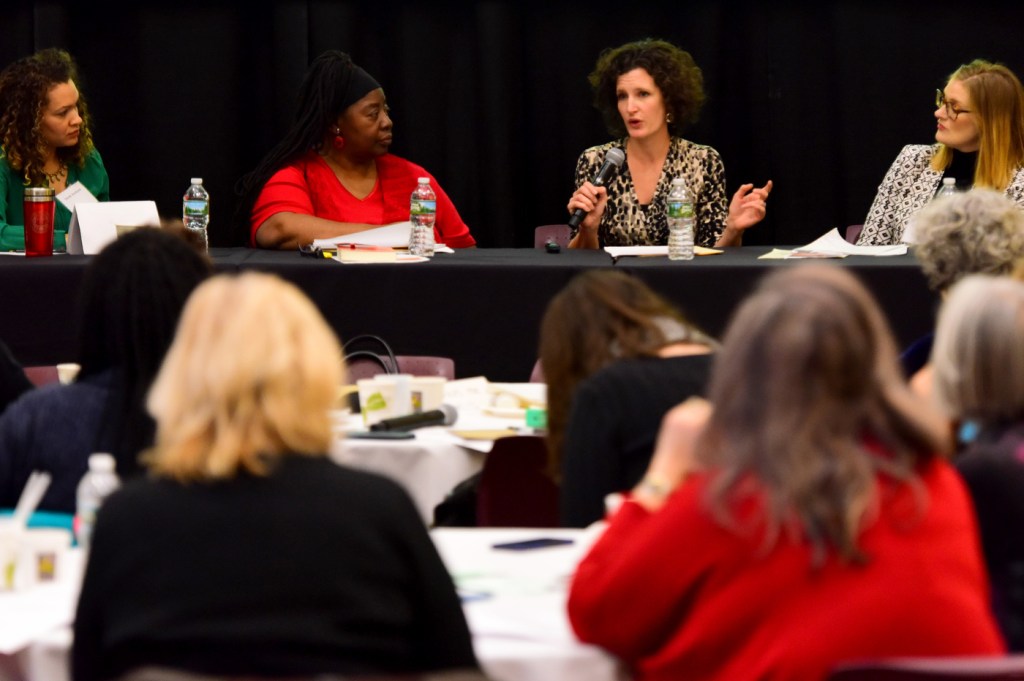
In a time of deep divisiveness in countries across the globe, the fourth annual Women’s, Gender, and Sexuality Studies Symposium at Northeastern on Friday sought to build coalitions to fight for the future of reproductive justice.
The daylong event, titled “No Turning Back: The Past, Present, and Future of Reproductive Justice,” convened more than a dozen scholars and activists whose work spans the globe to examine some of the current debates in the sphere of reproductive justice and define the work that still needs to be done.
“‘No turning back’ is certainly an important rallying cry, and we’re all engaged in looking ahead,” said Uta Poiger, dean of the College of Social Sciences and Humanities and one of the symposium’s organizers. In the wake of threats to the Supreme Court’s Roe vs. Wade ruling, which affirms abortion rights, and with January’s Women’s marches garnering millions across the globe, Poiger added, “I think we’re all deeply worried about the moment we’re living in, both nationally and internationally, and we’re here to think through the terms of what coalition-building needs to be done.”
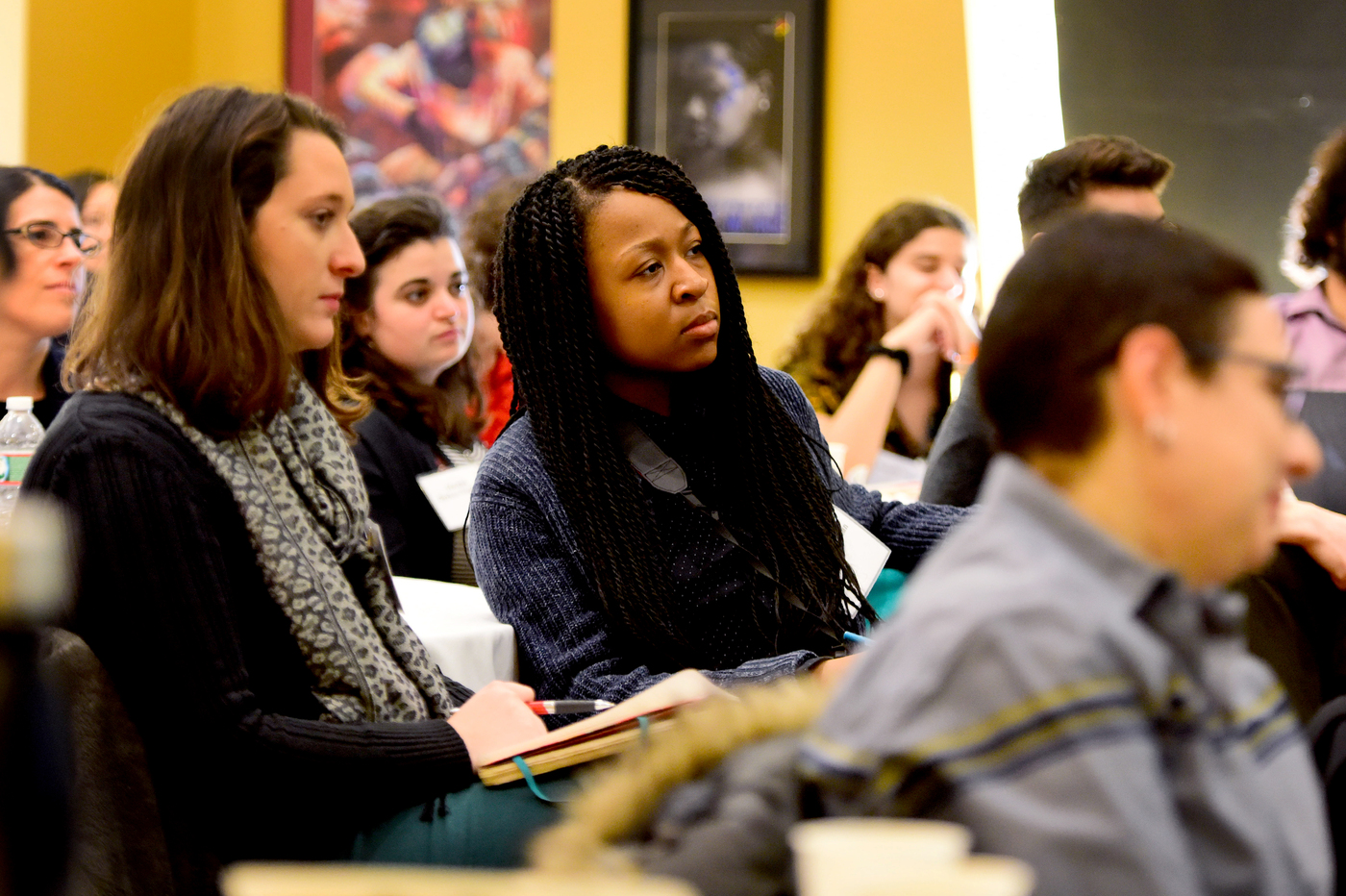
Members of the audience listen to speakers during the “No Turning Back: The Past, Present, and Future of Reproductive Justice” symposium on March 17, 2017. Photo by Matthew Modoono/Northeastern University
Co-organizer Suzanna Walters, sociology professor and director of the Women’s, Gender, and Sexuality Studies program, noted that each panelist on Friday was working toward “a future in which reproductive justice just is.”
Panelist Loretta Ross, national coordinator of the SisterSong Women of Color Reproductive Health Collective, defined reproductive justice as “the complete physical, mental, spiritual, political, social, and economic well-being of women and girls, based on the full achievement and protection of women’s human rights.”
Ross also highlighted the myriad ways in which racial and socioeconomic factors underpin the fight for reproductive justice on every front.
“What it really comes down to is this: Who is encouraged to have babies, and who’s discouraged from having babies?” Ross told stakeholders who filled the Cabral Center. She noted in particular that black and minority women—who are disproportionately affected by reproductive injustice—also tend to be the least represented voices in major women’s and reproductive rights organizations.
What this tells us as feminist theorists is that we must continue to demand collective accountability, and do so by following the lead of women of color activists who know best the needs of their own communities.
Laura Harrison
assistant professor at the State University of Minnesota Mankato
Laura Harrison, assistant professor at the State University of Minnesota Mankato, joined Ross on a panel moderated by Northeastern’s Sarah J. Jackson, assistant professor of communication studies.
Harrison offered a recent case study in racialized reproductive labor from a Detroit company seeking to pay women for their breast milk. The organization embarked on a pilot program that targeted black mothers in the city as breast milk donors—a program that alienated local community women’s groups and set up a situation in which low-income mothers might have to choose between breastfeeding their own infants or selling their breast milk in order to make ends meet.
Community groups rallied and issued an open letter to the company. Nine days later, the company abandoned its pilot program.
“What this tells us as feminist theorists is that we must continue to demand collective accountability, and do so by following the lead of women of color activists who know best the needs of their own communities,” Harrison said.
Another panelist—Carly Thomsen, assistant professor of gender, sexuality, and feminist studies at Middlebury College—made the case abortion needs to be reconsidered as the central issue for many women’s groups.
“The scapegoating of abortion and using it as the limit of a movement ought to be rethought,” Thomsen said. “How abortion is imagined and legislated has an impact on minority women groups.”
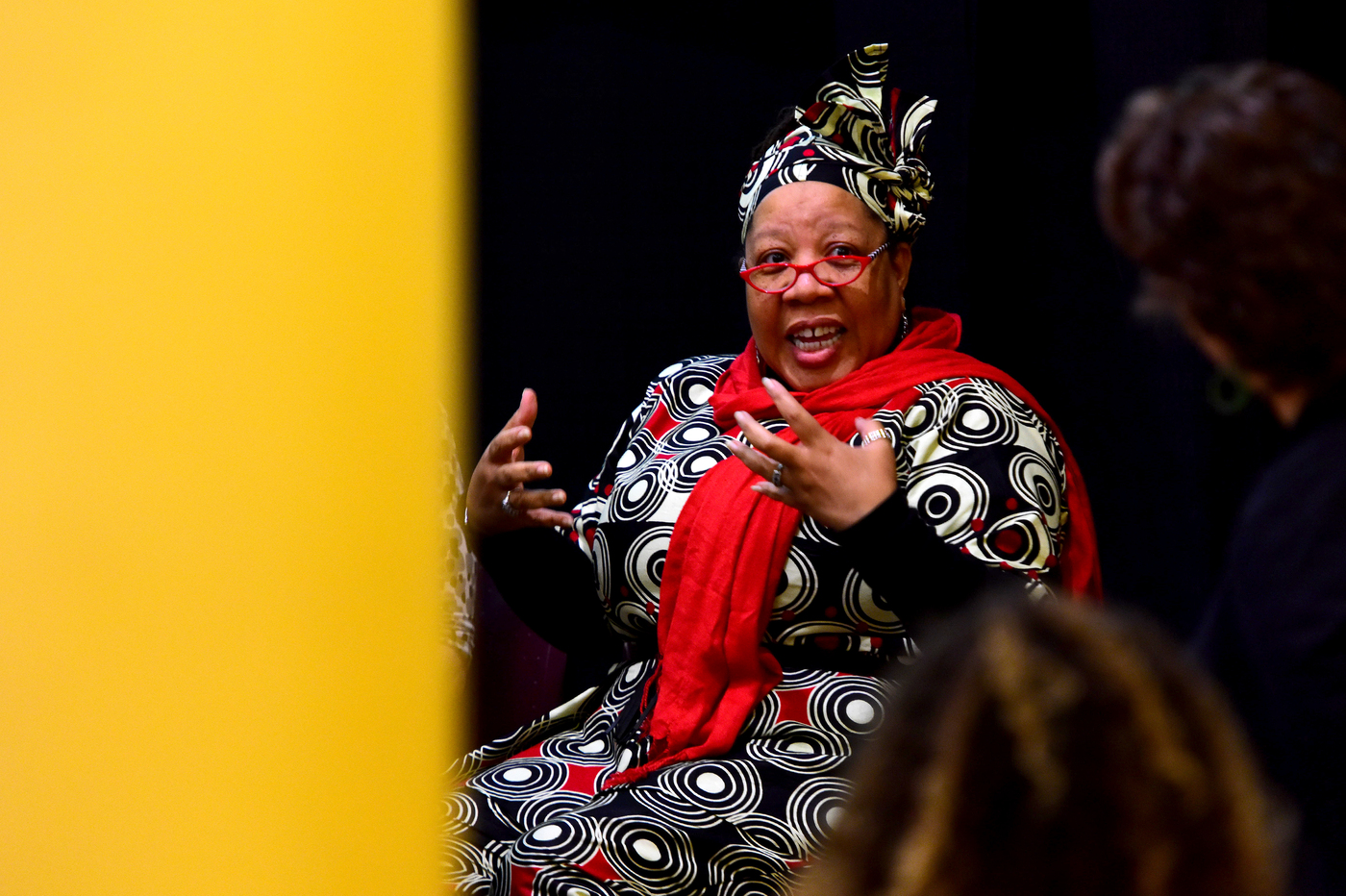
Dázon Dixon Diallo, president and founder of the activist group SisterLove, Inc., speaks during a question and answer session of the Women, Gender, and Sexuality Studies Program’s annual symposium. Photo by Matthew Modoono/Northeastern University
A final conversation among panelists who presented throughout the day focused largely on funding, with a particular focus on the struggle to secure it now and the reforms that would make it more effective.
Walters asked the group what they thought were the best practices for dealing with challenges posed by the new presidential administration.
Dázon Dixon Diallo, president and founder of the activist group SisterLove, Inc., responded immediately. She said that, of what little funding women’s rights and reproductive justice groups receive, too much goes toward advocacy while too little is funneled toward necessary services.
“What we end up with is one big Planned Parenthood egg in our basket,” she said. “There’s a gulf for us, and a different strategy would be to do a lot more investment in services so that if one organization is threatened, there are others waiting in the wings.”
